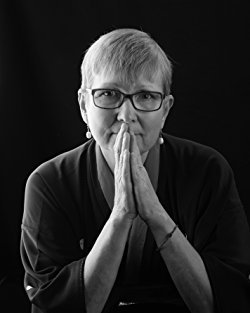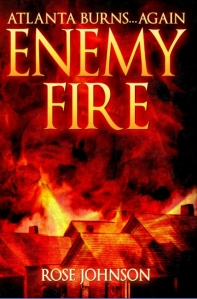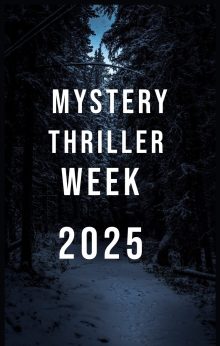I collected bugs for biology class. Watched waves washing the shore for physics. Spilled corrosive acid on my good jeans in chemistry, so they ended up looking like a fashion statement. What I didn’t learn: a) English grammar, b) sentence structure, c) paragraph structure, d) any writing structure, e) comma’s (OH I HATE COMMA’S). Bottom line. I never took English composition.
In 2005, I broke my leg. Badly. I was out for the last week of October and all November. OK readers, what is November but NANOWRIMO. Never heard of it before but somehow I discovered it and said to myself—“Self, why not.” With the week leading up to NANO, I thought about what I wanted to write. How about a techno-thriller? After all, I am a scientist and, at the time, was working for the most well known secret organization of the Defense Department (DARPA). Nope. I knew I would get too bogged down in techno-details. History? Yes, a historical mystery set in Georgia. I live in Georgia. Civil War? No. After soul searching, I realized that a fascinating time in history, for me, was the years between 1910 and 1920. So much was happening on many different levels. The Bolshevik Revolution in Russia. Titanic and Lusitania sinking. The Great War. Chemical warfare (my specialty actually). Electrified households. Telephone. Flu pandemic. Women’s rights. As I was surfing Georgia history, I came across a surprise. The Great Atlanta Fire occurred in May 1917. Most people remember the burning of Atlanta by Sherman during the Civil War. War of Northern Aggression according to my Georgia-born husband. Margret Mitchell’s “Gone with the Wind” set that event in everyone’s psyche. No one remembers the second time Atlanta burned. “Self,” I said, “this would be a great story element.” Not that I knew what a story element was, but it sounded like a good climax to a story. So out came 50,000 words during NANO November.
After NANO, I moved forward with my manuscript and joined an on-line critique group (mystery writers critique group, a Yahoo group). That is where all hell broke loose. I put up the first chapters of my cherished mystery for a crit review, and it crashed and burned. OUCH. The reviewers all hated it. Why? 1) It started with my heroine getting on a train in Chicago. She has lunch, watches out the window, has supper, goes to sleep. You get the point. UGH, boring. The story didn’t get to the mystery until chapter 8. Nope, everyone said. You need to hook your readers early. Don’t ramble about things that are irrelevant.
“Oh. Didn’t know that.” Started the rewrite.
Then I joined Georgia Romance Writers. Lots of educational opportunities. Seminars, workshops. Lots of good things. I learned the value of the first few chapters in hooking the reader. And writing a synopsis, and tag line, and back cover summary…and…and. Lots of learning. I was a green author who knew nothing. Both the online group and the real people group provided good advice with their sound thrashing. At least that advice was not “Go back to doing science.”
How did I handle all this negativity? Ha! Science publishing and going through peer review is orders of magnitude worse. After a 30+ year career in science (publishing three books and over 100 papers), a thick skin is part of the process.
As a scientist, my protocol is to gather all the data, assimilate it, understand it, analyze it with regards to my work and incorporate the critical gems that lead to improvement. I did that for my work-in-progress, which I learned is called a WIP. Writers recommended books on writing. Got them. Read them. Learned. And learned some more.
My next step was to get a crit partner. And thank God she was an English major. She was as brutal as the crit group but helped me straighten out my POV and de-inged me. My writing used a lot of –ing words which apparently is not a good thing. I am now –ing free. Well not entirely, but I do see if a reword will result in a better sentence without the –ing.
Writing science is done in passive voice. I had never heard about POV before. Oh man, what a struggle. It brought me to tears because I couldn’t tell the difference in POV. Oh, and head hopping and omniscient? Forget it. Out of frustration, I settled on first person present tense for my writing. That brought me more grief since crit reviewers, and some readers find it annoying. Look, I understand first person present tense. I’m going with it. I am not the first person to write in first person present tense and won’t be the last.
I put away my mystery writing for a few years because my career was moving me in a different direction. I came back to it recently since I realized “Oh my! Next year is 2017 which is the 100th anniversary of the Great Atlanta Fire.”
In the meantime, the wonderful internet (invented by DARPA by the way) and the World Wide Web (invented by CERNE) caught up with us English-composition-deficient writers. I discovered Hemmingway.com which helps me craft better sentences and delete unnecessary adverbs. Apparently, all adverbs are unnecessary, or this particular app hates adverbs. Maybe English comp teachers feel the same way. I wouldn’t know. Don’t know any. (BTW Hemingway app highlighted “apparently” and “maybe” as nasty adverbs that should be deleted. Just sayin’.) And grammarly.com checks a writer’s grammar and is a comma Nazi. It also highlights politically incorrect phrases. This is interesting when writing from a 1917 perspective. A fireman is a fireman in 1917, not a politically correct firefighter in 2017.
My advice to the newbie writer: 1) Don’t worry about a lack of English composition classes. 2) Develop a thick skin. 3) Surround yourself with the right people (crit partners, crit groups) to help you hone your story. 4) Never be discouraged but, never ignore constructive criticism. A corollary to that is that all criticism is constructive. Suck it up and learn from it. Cry in the shower if you have to. 5) Read. Read your genre and dissect it into its elements. OK that is a science thing. After a time, you will see trends that make for the foundation of a good story, 6) Join writing groups. Yeah, it may be expensive but pick and choose the one who you think will be of the most value to you. 7) The internet is your friend. Use it wisely. There are many free sites that provide great information to self-publishing authors as well as sites that help authors look for a publishing house. If a site sounds ‘too good to be true’ it is a scam. Don’t get sucked in. 8) The beauty of joining email discussion lists that are associated with writer organizations is that you learn to navigate and separate scams from reliable help sites. You can ask questions and learn from others mistakes.
As a new writer, never, EVER, think you are stupid or have an inferior story. 1) No one is stupid, and 2) Your story may be inferior because it needs refocusing or polishing. Mine needed a LOT of both. Embrace the challenge. Use the tools available today in the greater writing community. Both human and computer generated.
I’ve been there, done that. I may be a scientist, but I am a mystery writer now.
Rosemarie Szostak, Ph.D.

Enemy Fire (written as Rose Johnson)

Atlanta burns for the second time.

Reblogged this on Don Massenzio's Blog and commented:
Check out this great post from the Mystery Thriller Week blog by Rosemarie Szostak
LikeLiked by 1 person
Thank you for reblogging. This is one great post.
LikeLiked by 1 person
My pleasure.
LikeLiked by 1 person
Thanks Rosemarie!! Appreciate all of the tips!
LikeLiked by 1 person
I totally resonate with what you are saying. I struggle with composition myself and so I look for an editor that can help me work that out. Great article.I loved it. I love that you are a scientist and a mystery writer. I am reblogging this tomorrow. I want everyone to see this!
LikeLike
Reblogged this on The Page Turner and commented:
Science and mystery meet with Rose Johnson. Reblogging from the Mystery Thriller Week.com
LikeLike
Reblogged this on The Owl Lady.
LikeLiked by 1 person
Well (blush), thank you all for your really sweet comments. Since I wrote this blog post I did some more research on scientists who wrote fiction. Issac Asimov was a biochemistry professor before he started to write science fiction (I, Robot; Fantastic Voyage and 500 more novels). The astronomer Carl Sagan wrote Contact. Michael Crichton was a physician before he became a best-selling author (Jurassic Park; Andromeda Strain among others). Charles Lutwidge Dodgson, who wrote under the pen name Lewis Carroll, was a mathematician (Alice’s Adventures in Wonderland). Jennifer McQuiston is a veterinarian and infectious disease researcher at the CDC in Atlanta. She writes historical romance (The Spinster’s Guide to Scandalous Behavior and others). I met her at the Georgia Romance Writers meeting. An inspiration.
LikeLiked by 1 person